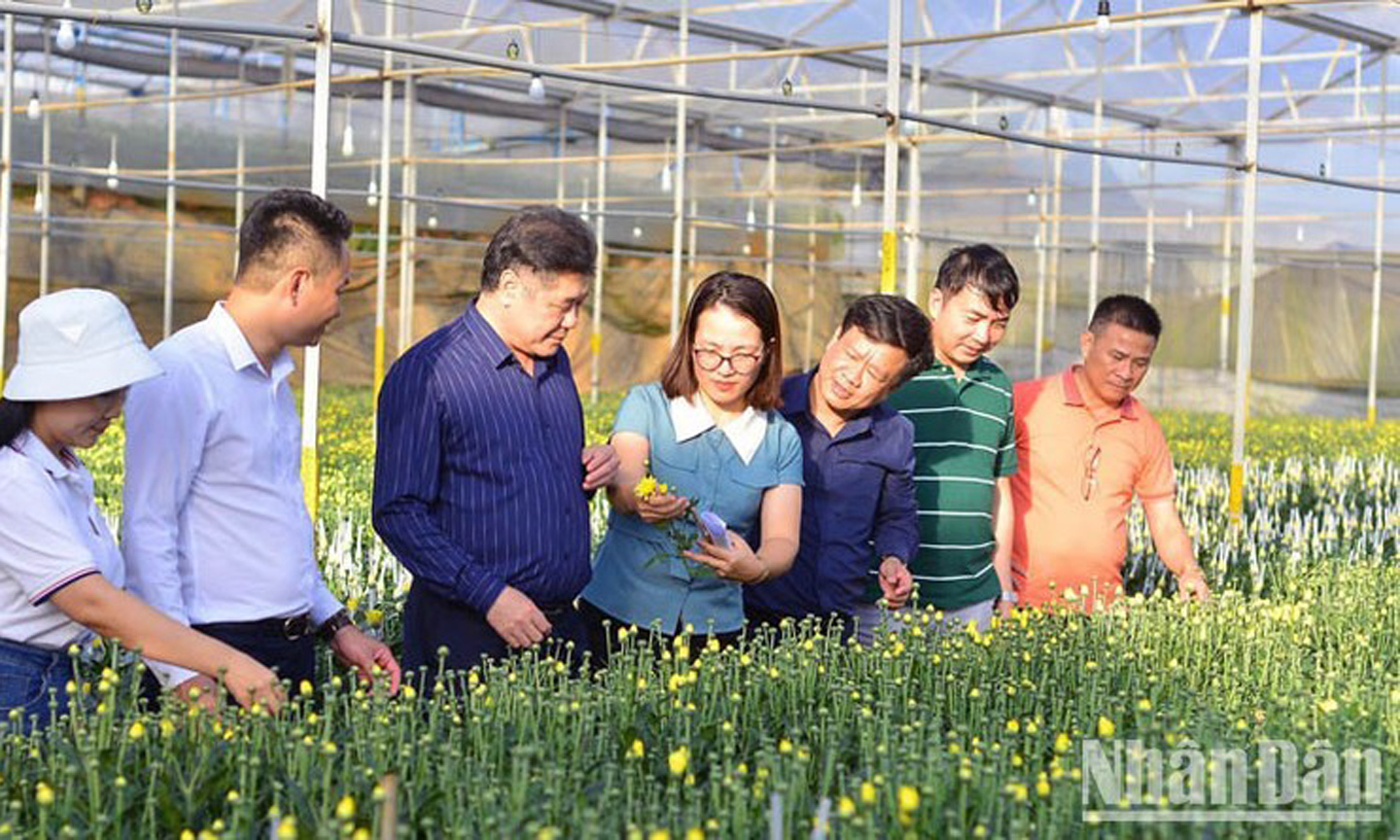Organic and circular agriculture becomes world trend
ABO/NDO- Director of the National Agricultural Extension Centre Le Quoc Thanh said, that organic agriculture and circular agriculture are world trends, which aim to create high-quality and high-value products for high-quality markets.
Thanh made the remarks at a forum entitled “Promoting organic and circular agriculture associated with environmental protection and biodiversity”, held in Da Lat City on August 25.
He emphasised that organic agriculture must follow the processes and principles with due attention paid to transparency, as well as the protection and identity of certified organic agricultural products to avoid confusion for consumers.
 |
| A delegation of the National Agricultural Extension Centre visits a high-tech flower production model in Da Lat City (Photo: NDO). |
At the forum, delegates discussed the current situation, trends and solutions for the development of organic and circular agriculture in parallel with environmental protection and biodiversity. Experts and scientists also analysed obstacles in the field and proposed measures for sustainable development.
According to the National Agricultural Extension Centre, Vietnam has about 500,000 ha of organic agricultural production, out of 11.5 million ha of agricultural land. There are 46 provinces and cities nationwide that are conducting organic agricultural production, with the participation of 100 companies and 17,000 farmers.
The export turnover of organic products is reported at about 335 million USD per year, with main products such as rice, shrimp, coconut, coffee, milk, tea, vegetables, and fruit.
Meanwhile, circular agriculture is a relatively new concept in Vietnam and has not yet become a popular production model, which has only been implemented in several provinces, farms, and enterprises. Vietnam is gradually bringing the circular economy into its institutional and policy framework.
Experts believe that organic agriculture and circular agriculture are trends with many benefits, however, organic production needs to adhere to four principles of health, ecology, fairness and prudence.
(Source: NDO)
 về đầu trang
về đầu trang







